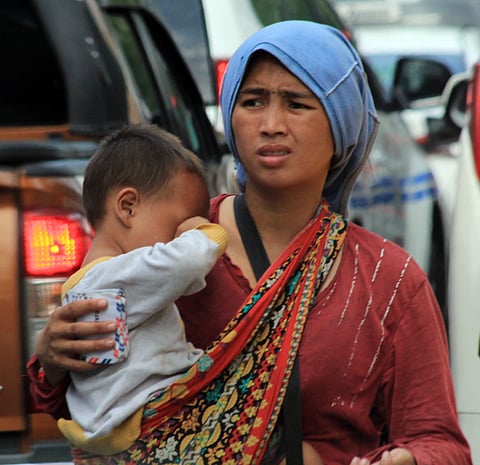
- HEADLINES
- NEWS
- PAGE THREE
- COMMENTARY
- BUSINESS
- LIFE
- ACTION
- GLOBAL GOALS
- SNAPS
- DYARYO TIRADA
- AIF
- MORE

The Philippine Coast Guard and the Department of Social Welfare and Development have joined forces to curb human trafficking, particularly tribe members of the indigenous Badjao who roam around cities to seek alms, especially during the Christmas Season.
Social Welfare Secretary Erwin Tulfo on Tuesday personally talked to PCG District Southwestern Mindanao Commander, Commodore Marco Antonio Gines, to seek assistance for the protection of Badjaos from being victimized by syndicates, bringing them to Manila and forcing them to beg for alms.
The PCG Zamboanga was requested to scrutinize traveling Badjaos if their journeys going to Metro Manila are legal or if they can provide the address and contact information of the people where they will be staying.
"They will undergo a background check in coordination with DSWD and local government units. If their journey is unreasonable, then they will not be allowed to board the vessel. Secretary Tulfo told us to be meticulous, as these tribe members are being used to seek alms. We support this initiative to end human trafficking," said Commodore Armand Balilo, PCG spokesperson.
Tulfo raised concern over the illegal activities of syndicates that bring Badjaos to Manila which has been happening over the years.
A single Badjao earns a maximum of P5,000 a day for begging on the streets of Metro Manila, he added.
President Ferdinand R. Marcos, he said, ordered him to provide Badjaos a decent livelihood and keep them away from vultures that bring them to Manila to beg during the Christmas season.
Tulfo said "over 300 families have been sent home since last week," most of them are from the provinces of Basilan and Sulu.
"We do not stop there," Tulfo said, adding that in a few weeks, DSWD is also set to establish a wet market where the Badjaos can sell their products.
The DSWD also partnered with the local Civil Registrar Office to launch a birth certification registration program for Badjao payout recipients in Zamboanga City.
"Since they don't have birth certificates, they are not entitled to receive benefits and avail of the sustainable livelihood program of the government," Tulfo said, adding that the city will be the pilot area of the birth certificate registration program for indigenous peoples.
He said the program will be launched nationwide for the benefit of the IPs in Luzon Island and the provinces of Mindoro, Cotabato, Davao and Palawan.
